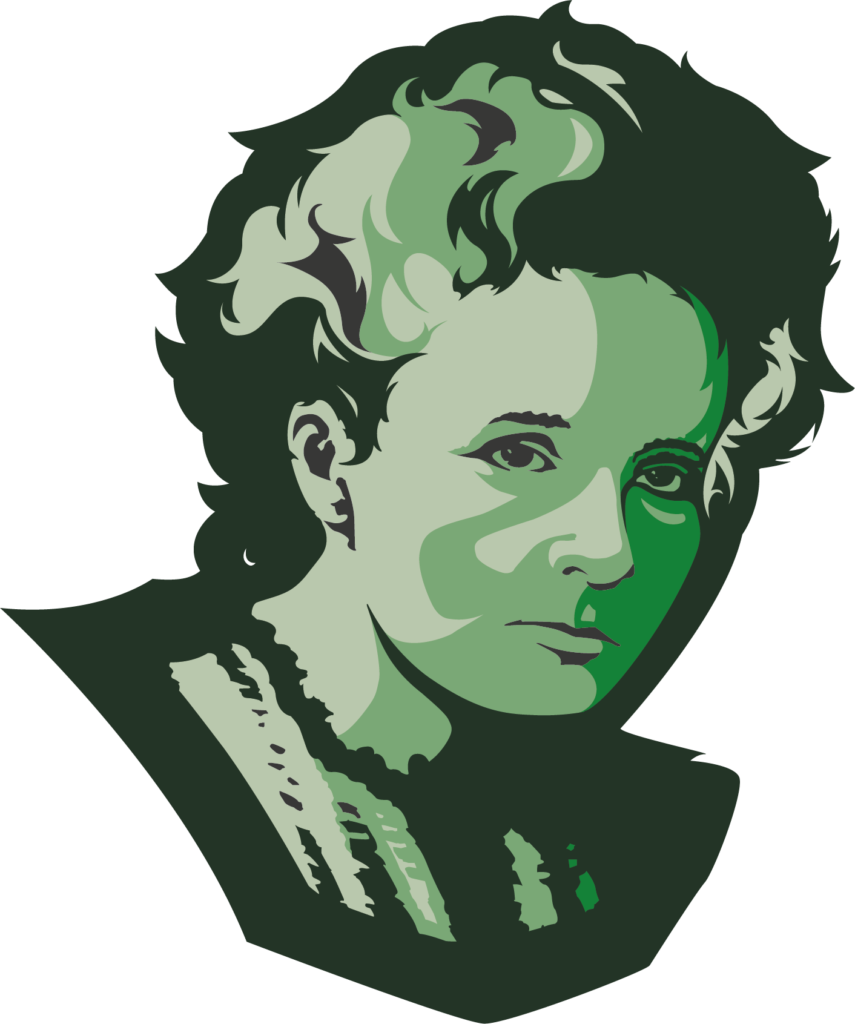‘Life is not easy for any of us. But what of that? We must have perseverance and above all confidence in ourselves. We must believe that we are gifted for something and that this thing must be attained’.
Marie Curie was Polish born and was the first woman to win a Nobel Prize in 1903. She went on to win another Nobel Prize in 1911 in Chemistry that awarded her for her work in discovering a way to measure radioactivity. Marie Curie is most famous for working alongside her husband to discover two new elements: radium and polonium. This was not easy work and she demonstrated resilience and perseverance in her pursuit to prove that these elements existed.
Marie Curie was open minded. She listened to the ideas of others to help her develop her work on radiation. She was a risk-taker, carrying out many experiments with radioactive elements to develop more powerful x-rays. Curie’s work with these materials inevitably led to her becoming ill and it is suspected today that the physical nature of the work and the exposure to radioactive materials resulted in her developing radiation sickness.
Marie Curie was balanced; she continued to work and pursue her passion for science whilst also having a husband and raising two daughters. She was caring and compassionate. During World War One she created mobile x-ray units and trained women to operate them to help soldiers who were injured in battle. She was reflective and applied this nature to her work, often looking back at her discoveries and seeing what she could do to further develop them.
Marie Curie was a thinker, taking what she knew and applying it to allow her to make new discoveries and she was principled, spending time working as a teacher to pay for her sister to go to university.
‘We know what we are, but not what we may be’



